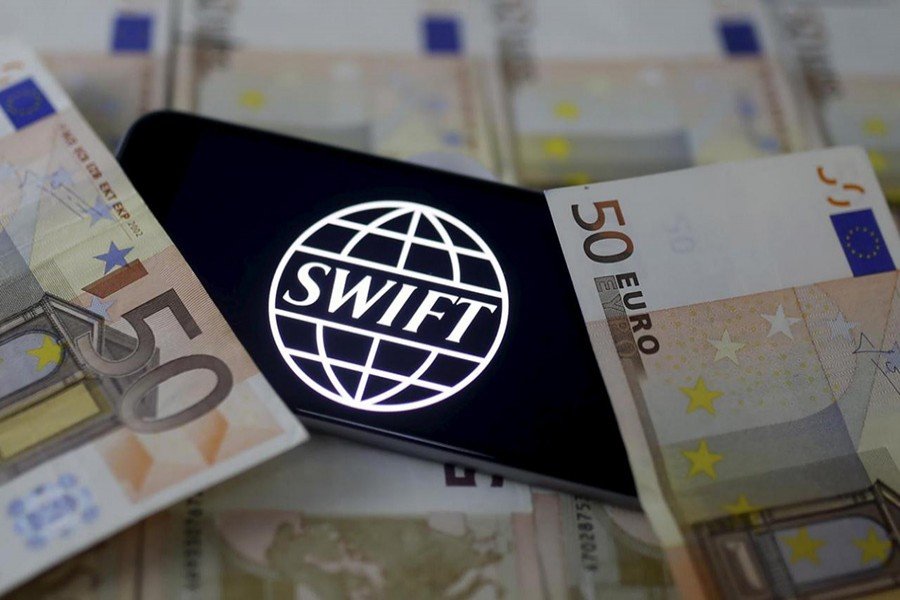Europe steps up drive to exempt Swift from Iran sanctions

European finance ministers will try to persuade the Trump administration not to cut off Iran’s access to Swift, the global financial messaging service, in meetings with Steven Mnuchin, the U.S. Treasury secretary, at the IMF gathering in Bali this week.
The Trump administration is due to reimpose hefty sanctions against Iran on November 5, including secondary sanctions on financial messaging services to the Central Bank of Iran and some Iranian financial institutions.
France, Germany and the UK — which signed on to the seven-party 2015 Iran nuclear deal from which Donald Trump unilaterally withdrew in May — are frustrated that they have not been able to convince the Trump administration to take a softer line on Belgium-based Swift.
“Our ask is: why bother ripping out all of the electrical cables from a building if you can switch off a light,” said a European diplomat who confirmed the planned meetings. “If you can designate a bank [for sanctions] then there’s no need to force Swift to disconnect from Iran.”
The disagreement over Swift was heading for “a diplomatic train wreck”, according to another person familiar with the matter. European officials who met U.S. officials last month to ask for leniency have so far drawn a blank.
“We did a démarche to the administration, but it was a complete blockage; they didn’t listen to our argument,” said a second European official.
The Trump administration has yet to reach a final conclusion on how to treat Iranian commercial banks, although many believe it is likely to reimpose sanctions on the central bank and cut it off from Swift.
Supporters of Swift worry that the international co-operative, whose 25 board directors include two U.S. bankers from Citi and JPMorgan, would find it impossible to comply with U.S., European and Belgian law at the same time if their instructions diverge.
“As there has been no related change to EU legislation we are naturally consulting with and seeking clarification from both EU and U.S. authorities,” said a senior Swift official. Swift officials met U.S. administration representatives in Washington last week.
Some officials and people briefed on the matter believe that Mnuchin will want to act in support of Swift to safeguard America’s role in the secure global messaging system, which connects more than 11,000 banks in more than 200 territories, and avoid sending Iranian transactions underground.
But hardliners within the administration and on Capitol Hill who are close to Trump plan to renew their campaign to isolate Iran entirely from Swift in the final run-up to November 5.
They argue the U.S. could issue visa bans and asset freezes of Swift’s board members and pursue charges and fines against its member banks if Swift refused to comply with sanctions. They believe that its shareholders would not take such risks.
Richard Goldberg, who wrote the original 2012 sanctions laws that excluded Iran from Swift before they were ended by the 2015 Iran deal, said the decision would fall to Trump: “The big wild card is if there is a fight in the Oval Office between Secretary Mnuchin and Ambassador Bolton, where does the president come down?” he said.
German foreign minister Heiko Maas has argued that Europeans could create their own rival to Swift based on the euro rather than the dollar. Russia and China are both pursuing their own systems.
“Hope remains that there might be a complete carve-out for Swift,” said a person following the matter, adding Mnuchin could in theory advocate for a delay or waiver in implementing any sanctions directed specifically against Swift.
UK and French finance ministers are due to meet Mnuchin at the IMF meetings, as is Valdis Dombrovskis, the EU commission vice-president responsible for financial services policy. Germany’s finance minister may also meet with him.
European diplomats are also pressing the U.S. to exempt Swift from transactions penalties on humanitarian grounds, to ensure the provision of food and other non-sanctionable consumer goods to the Iranian people.
“The U.S. has some discretion in this area,” said Elizabeth Rosenberg, a former senior Treasury adviser who previously worked on tightening Iran sanctions. “There’s probably an elegant solution here for Swift and the U.S. Treasury, which surely doesn’t want to be in a position of taking an enforcement action with Swift.”
(Source: Financial Times)
Leave a Comment